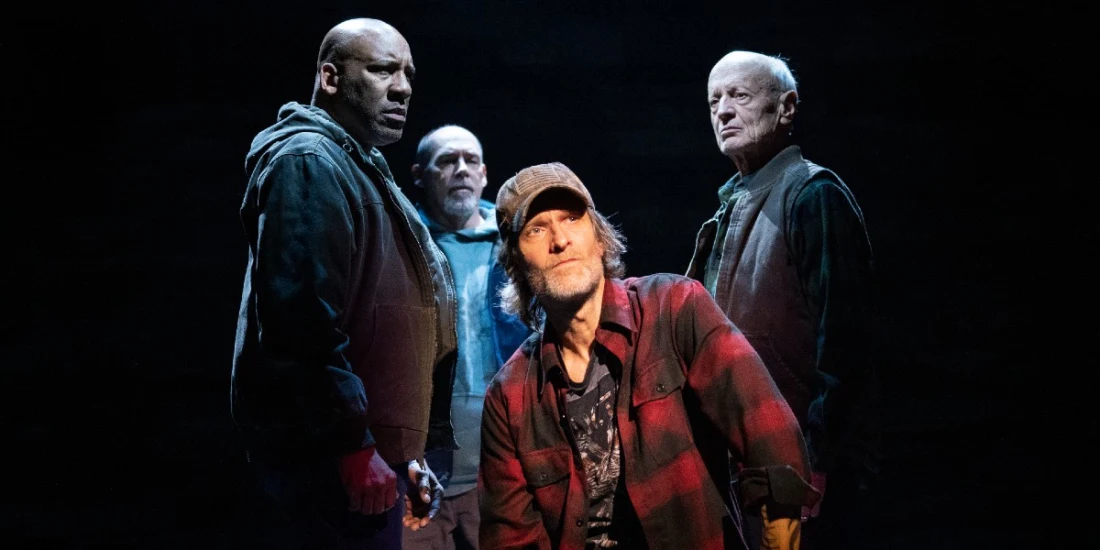'Coal Country' review — poignant docudrama explodes with new relevance
It's difficult to avoid comparing Coal Country to its theatrical relatives. With a no-frills set, a plain-clothed ensemble performing directly to the audience, and music played right on stage (in this case, by composer Steve Earle), the staging brings Come From Away to mind. The exact genre of Coal Country recalls Girl From the North Country: a "play with music" moreso than a musical, in which the songs don't drive the plot, but reinforce the mood of a given moment.
But perhaps most surprisingly, Audible Theater's remount of the somber Coal Country isn't a wild departure from the stand-up comedy shows that have occupied the Cherry Lane Theatre as of late. The laughs in Coal Country are sparse, but like in stand-up, the performers tell true stories directly to the audience and create a strong connection. You may not feel uplifted after hearing the performers' stories — they portray those who lost family members in a 2010 West Virginia mine explosion, reciting excerpts from real interviews — but after we've all experienced collective grief amid the pandemic, you'll feel seen, making the show even more affecting than during its first (abbreviated) run in March 2020. Anger, loneliness, steely resolve, even humor: However one copes with loss, they'll see it represented here.
As such, I'm reluctant to dwell on Coal Country's flaws — the underuse of Earle and his melancholy music, the clumsiness of director Jessica Blank's (who co-wrote the docudrama with her husband, Erik Jensen) attempts at kinetic staging amid mostly static "talking head" delivery — because despite it all, the deep, messy, and unresolved pain of each character lingers in the mind long after the show ends, like coal dust on the skin.
The performances are uniformly excellent, with Carl Palmer and Amelia Campbell standing out as Goose, a miner who chillingly calls his workplace "a ticking time bomb" months before the explosion; and Mindi, his down-to-earth wife who is his unwavering source of confidence, especially when he's called on to testify on behalf of his 29 deceased colleagues when the mine-owning company is put on trial. Michael Laurence plays Tommy, the lone other survivor whose family members were not so lucky. Earle's guitar often underscores Tommy's lines, including an electrifying outburst of anger, making for some of the show's most poignant moments when speech and song work together.
There's also something refreshingly rural about Coal Country — be it the actors' drawls, the folksy music, or the way the wood-hewn set nearly blends with the wood-paneled walls of the Cherry Lane, the play truly takes audiences out of the city and brings us closer to people and a place we might not otherwise give a second thought to, even more so than shows like Come From Away or North Country that showcase small towns in large, gaudy spaces.
And though some of the details about the miners' work or their relationship with the union or their family ties get lost within the monologues, the image of the Upper Big Branch Mine's stifling darkness — and that contrasting, deadly fireball that collapsed it — comes through clearly. Though Jensen and Blank don't completely succeed in making a dynamic show out of their interview material, the real-life West Virginians couldn't have conveyed their situation better. What Coal Country's creators did right was preserving their words verbatim, even if more music or movement could have elevated them. No fictional tragedy can compare to the devastation of reliving a true one.
Photo credit: Ezra Knight, Carl Palmer, Michael Laurence, and Thomas Kopache in Coal Country. (Photo by Joan Marcus)
Originally published on
